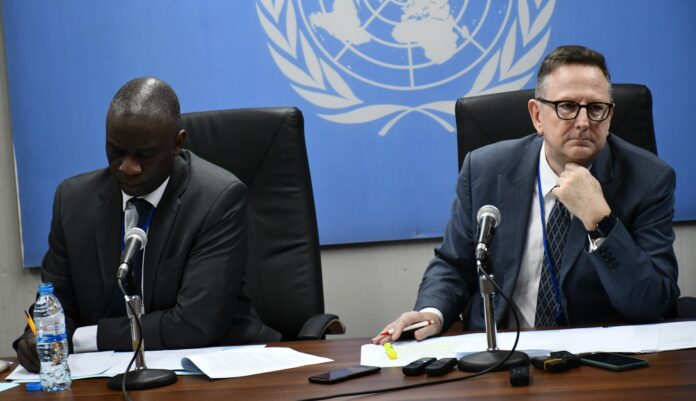
The United Nation Human Rights Commission is calling on leaders to end communal attacks in several states. Experts express the need to prioritize a peaceful integral transition in South Sudan.
The UN Human Rights Commissioners have visited Juba, and Upper Nile State where the UN protects civilians.
They met with survivors of human rights violations, members of civil society, senior Government ministers, civilians, judges, diplomats, and UN agencies.
They say political leaders must seize the opportunity to reset the country toward peace, democratic transformation, and prosperity.
The UN Human Rights Commissioner Barney Afako says citizens are suffering across the country including unspeakable sexual violence against women and girls.
“There is a need for political leaders to reorient their priorities and work together to put an end to this needless violence and protect the human rights of South Sudanese.”
“The accounts from survivors are horrific. Many people the Commission has met have experienced attacks over and over again. At the same time, people responsible for crimes walk freely.” he reiterates.
Another UN expert, Andrew Clapham says South Sudanese continue to experience sexual violence and attacks on civilians are increasing.
He says perpetrators are not brought to book despite UN documentation of human rights violations.
“Our Commission has documented human rights violations in South Sudan for many years, but we were still shocked by the sexual violence and continuing attacks against civilians,” he says.
Andrew Clapham adds that victims and survivors of violence in Upper Nile have been telling them horrific stories.
He says vicious attacks frightened families to hide in the bush for days and they had to walk miles to reach safety.
He encourages the government to use mobile courts to provide justice while addressing a wide range of crimes in the states.
Clapham guarantees that their commission will remain committed to identifying individuals responsible for serious crimes under both South Sudanese and international law.
“The Commission continues to identify individuals responsible for serious crimes under both South Sudanese and international law. We keep a confidential list of names and collect and preserve evidence against them which could be used for future prosecutions by the Hybrid Court,” he said.
The Commission has documented widespread attacks against civilians in Southern Unity, Upper Nile, and parts of Jonglei states.
The Commission says it will present its report on the human rights situation in South Sudan to the UN Human Rights Council in March.
